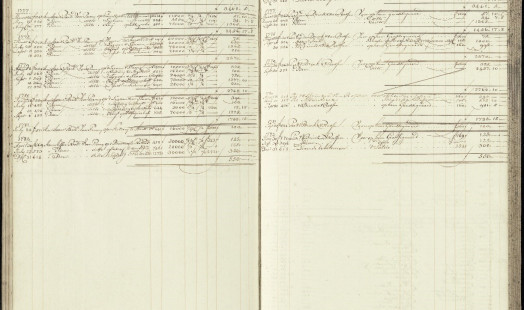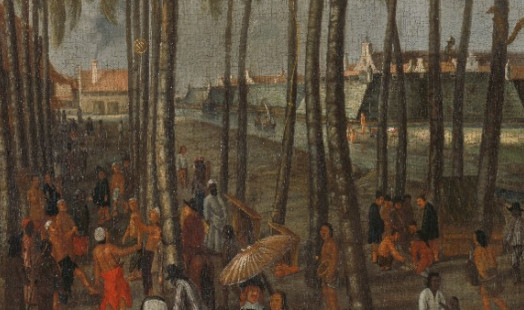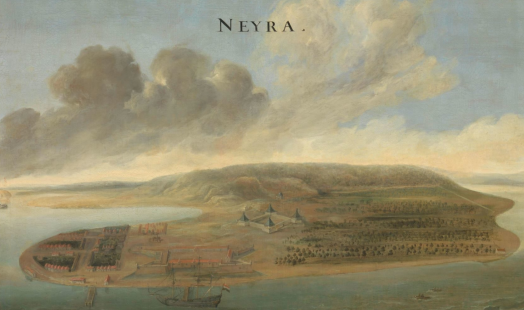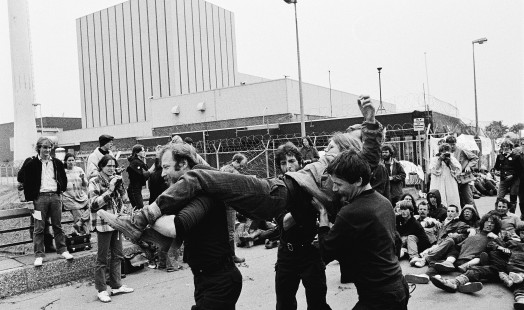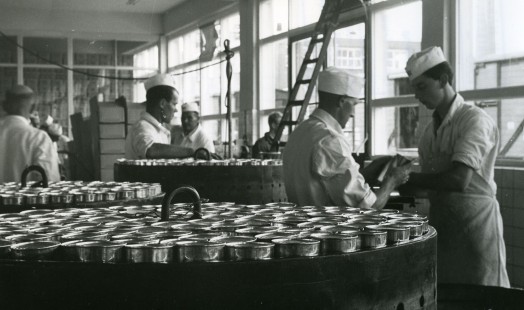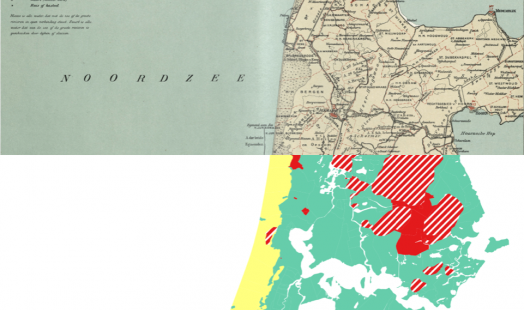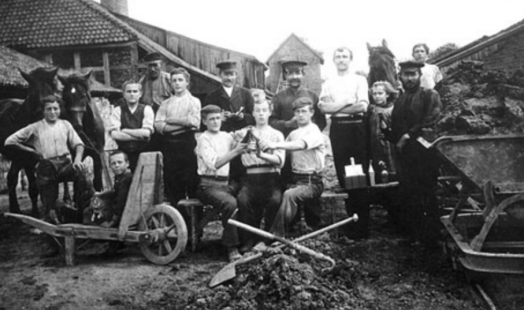

Slavery Verzekerd
Het project "Slavernij Verzekerd: Een onderzoek naar de Amsterdamse Assurantie Compagnie 1771 en haar betrokkenheid bij slavernij, 1771-1873" richt zich op de geschiedenis van één Amsterdamse verzekeringsmaatschappij en haar betrokkenheid bij slavernij. Tot nu toe is de rol van verzekeringsmaatschappijen in zowel de slavenhandel als de handel in door slaven geproduceerde goederen onderbelicht gebleven.
Migranten en de rechtbanken van Amsterdam, 1600-1800
Dit project zal opnieuw kijken naar deze veronderstelling van tolerante co-existentie tussen migranten en de lokale bevolking, door zowel de institutionele behandeling van migranten als hun interpersoonlijke interacties met hun buren te bestuderen, zoals gedocumenteerd in de archieven van het stedelijke rechtssysteem. Door te kijken naar hoe sterk de plaats van herkomst de behandeling van migranten in de Nederlandse Republiek beïnvloedde, kunnen we een meer genuanceerde analyselaag toevoegen aan de karakterisering van de vroegmoderne Nederlandse Republiek als 'tolerant', naast een analyse van confessionele coëxistentie of van sociale mobiliteitstrends op de lange termijn.
GLOBALISE: Digital research infrastructure for VOC archives
Consisting of approximately twenty-five million pages, the UNESCO Memory of the World-listed archives of the Dutch East India Company (Verenigde Oost-Indische Compagnie, VOC) offer a unique view on interactions between European and non-European actors in Asia in the seventeenth and eighteenth centuries. Currently, however, doing research on this vast collection of handwritten documents is extremely challenging. The GLOBALISE project creates an online research infrastructure that unlocks the key series of VOC documents and reports for advanced new research methods. The infrastructure will engage the wider public with this many-sided and increasingly hotly-debated period of Dutch overseas history.
Staat en Slavernij
State and Slavery details how the Dutch state and its predecessors were involved in colonial slavery. It describes how different stakeholders, such as enslaved people, administrators, and entrepreneurs in the Dutch Republic and in colonized societies responded to slavery. The project has the dual aim to explore current research into the Dutch colonial slavery past and the latter’s impact on contemporary societies through the publication of State and Slavery and, additionally, to draft an agenda for future research into Dutch slavery practices.
Resisting Enslavement: A Global Historical Approach to Slavery in the Dutch Atlantic and Asian Empire (1620-1815)
This project questions how resistance by enslaved impacted slavery and modes of enslavement in societies connected to the global Dutch colonial empire. By studying slave resistance from a global micro-historical perspective, the Resisting Enslavement project questions how different modes of enslavement impacted i) patterns of slave trade, ii) the labelling and treatment of enslaved, iii) and the social and resistance strategies of enslaved in the early modern Dutch Atlantic, Indian Ocean and Indonesian archipelago worlds.
Land Grabbing en Nederlandse Expansie, 16e-18e eeuw
“Land grabbing”, gedefinieerd als de gedwongen overname van land van boerenbevolkingen door commerciële investeerders, heeft een enorme impact op de wereldwijde organisatie van de landbouw. Dit hedendaagse fenomeen wordt in het Nederlands vaak omschreven met de term landonteigening of landroof. Commerciële landroof bestaat al honderden jaren, maar er is nog altijd een gebrek aan kennis over de historische dynamiek hierachter. Eén van de redenen is dat land grabbing vaak primair wordt bekeken als een vorm van corrupte, gewelddadige politiek. Die staat dan tegenover de reguliere koop en verkoop van land via het marktmechanisme. Dit project biedt een radicale omkering van dit perspectief door te onderzoeken hoe de sterk marktgerichte Nederlandse Republiek en haar handelscompagnieën (de VOC en WIC) land grabbing inzetten voor het bevorderen van commerciële landbouw. Door zich te richten op de Nederlandse Republiek, een kernspeler in het de geschiedenis van de vroegmoderne globalisering, werpt dit project nieuw licht op de plaats van land grabbing in de geschiedenis van het kapitalisme en biedt het inzichten in de mechanismes die de gewelddadige onteigening van boerenbevolkingen verbonden met de ontwikkeling van kapitalistische landbouw.
De atoomketen. Kernenergie, activisme en de planetaire toekomst, 1960-1990
Vanaf de ontwikkeling van atoomsplijting in de jaren veertig tot de Tsjernobyl-ramp van de jaren tachtig gold kernenergie als de toekomst. Wetenschappers, politici en beleidsmakers voorspelden een transitie naar een nieuwe, nagenoeg onuitputtelijke, goedkope en 'schone' energiebron. Maar deze eerste 'energietransitie' stuitte in Nederland op groeiend maatschappelijk verzet dat zich verenigde in de anti-kernenergiebeweging (AKB).
The Lives and Afterlives of Imperial Material Infrastructure in Southeastern China
This project (InfraLives) offers a critical analysis of how large-scale infrastructures such as roads, city walls, and bridges have contributed to regional and empire-wide integration, but equally why and how processes of integration regularly broke down, and how large-scale infrastructure projects contributed to countervailing trends including local tension, local autonomy, and cross-border regional formations.
Tussen Solidariteit en Fragmentatie
Tussen solidariteit en fragmentatie. Een analyse van de gevolgen van en reacties op veranderende arbeidsverhoudingen door werkvloer en vakbeweging in Nederland, 1970-2020
PhD Researcher: Rosa Kösters MA
Promotor en projectleider: Dr. Matthias van Rossum
Promotor: Prof. dr. Leo Lucassen
Het project Tussen solidariteit en fragmentatie onderzoekt de gevolgen van de transformatie van werk in Nederland voor werkvloerverhoudingen en effecten daarvan op hoe werkenden zich organiseren.
(Re)counting the Uncounted. Replication and Contextualisation of Dutch and Belgian Premodern Population Estimates (1350-1800)
Het vaststellen hoeveel mensen in een bepaald gebied wonen is niet enkel een academische exercitie. Het vormt de hoeksteen van historisch, economisch, en sociaalwetenschappelijk onderzoek.
Margaret Michaelis and Kati Horna: Female CNT-FAI Photographers during the Spanish Civil War
Research on two Jewish antifascist women photographers from Central Europe: the Hungarian Kati Horna and the Austrian Margaret Michaelis. After leaving Nazi Berlin in 1933 they both ended up in Barcelona during the Spanish Civil War, committed to the anti-fascist and revolutionary struggle carried out by the anarchists of the CNT (National Confederation of Labor) and the FAI (Iberian Anarchist Federation).
VOC-schip Rooswijk: vergaan maar niet vergeten
Op 10 januari 1740 verging het VOC-schip Rooswijk in een zware winterstorm voor de kust van Engeland. Anno 2018 staat het schip volop in de schijnwerpers. Afgelopen zomer werd de opgraving van het schip voor het 2017 afgerond. Britse en Nederlandse archeologen, professionele duikers, amateur archeologen en tientallen studenten, hebben duizenden vondsten naar boven gehaald. De Rijksdienst voor het Cultureel Erfgoed, die dit project leidt, werkt samen met Historic England aan het vervolg van het project in 2017 en 2018.
